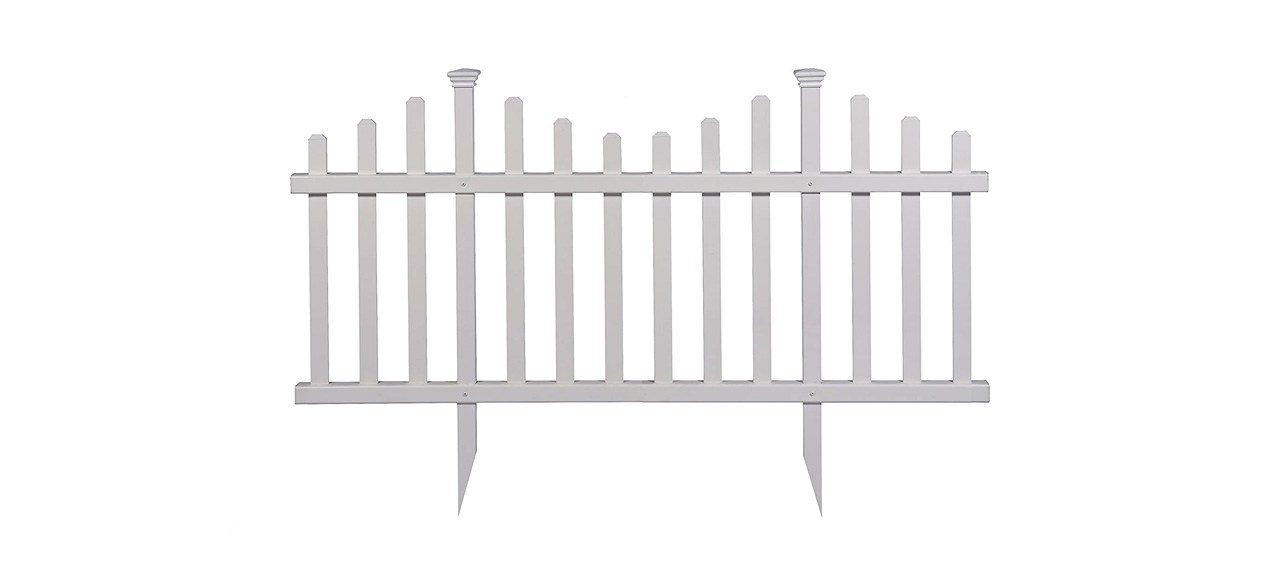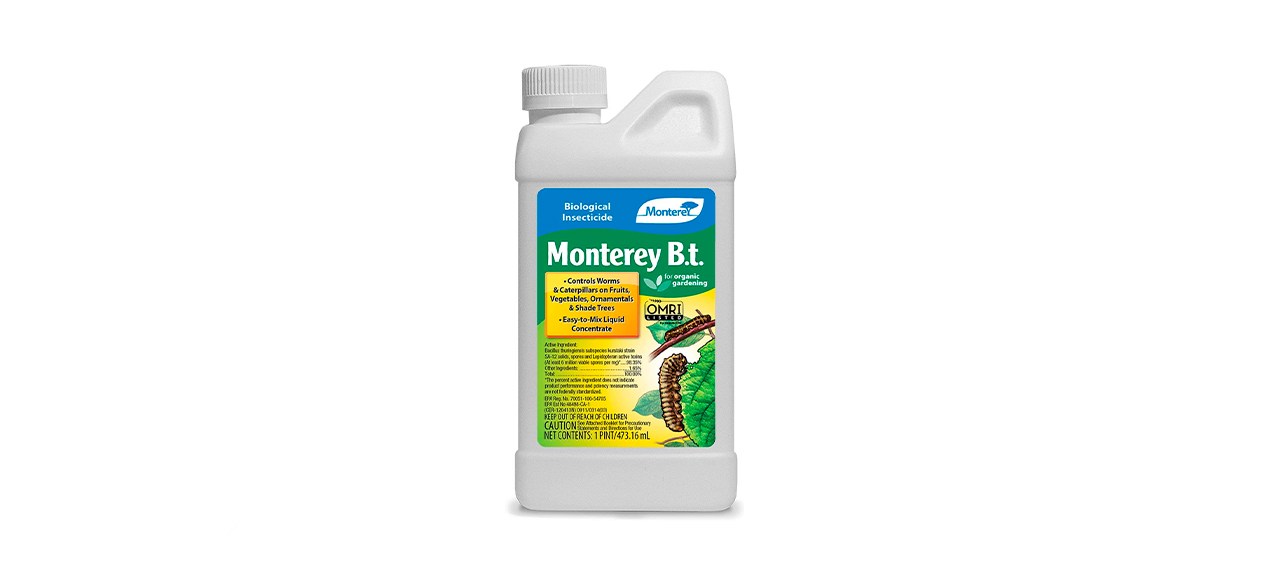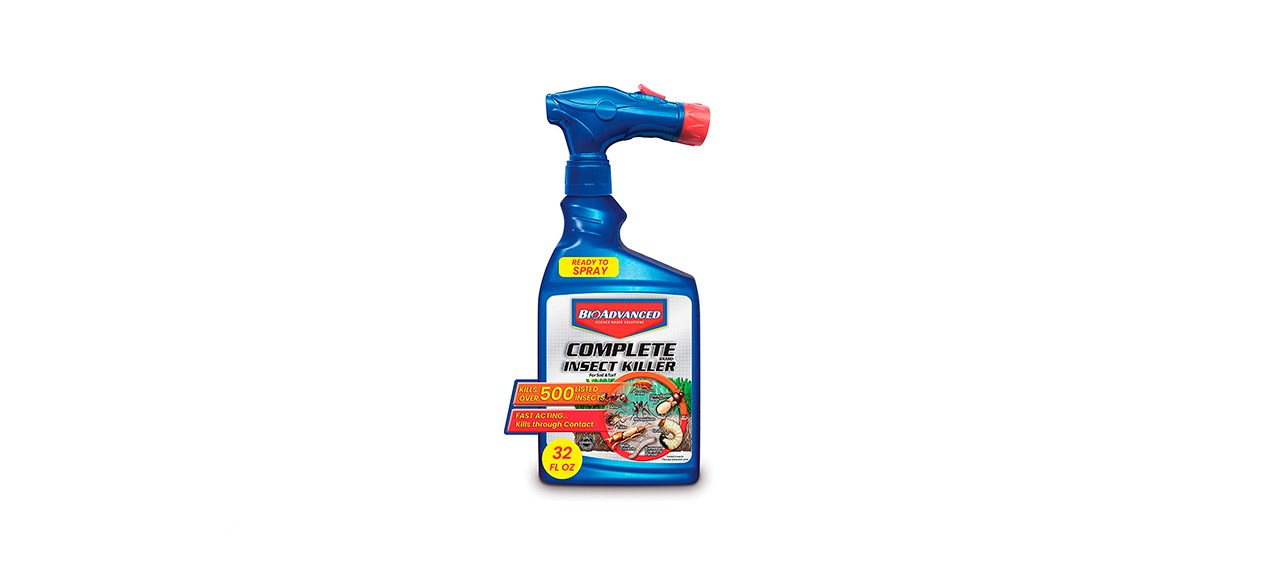Best armyworms treatments
There’s nothing better than stepping out into your backyard to enjoy a lush green lawn. Anyone who maintains a lawn knows how much care goes into correctly watering and caring for grass.
So it can be frustrating when a pest like armyworms comes along and destroys your hard work. Luckily, it’s pretty easy to take care of an armyworm infestation. If you catch the problem early, you can even avoid the worst of the damage to your lawn.
Shop this article: Scotts Turf Builder Rapid Grass Sun & Shade Mix, Monterey Worm & Caterpillar Killer Concentrate and Bayer Crop Science Complete Insect Killer for Soil & Turf
What are armyworms?
Armyworms are the larvae of certain species of moths. The moths lay their eggs in your yard. Once the larvae hatch, they grow into caterpillars and feed on leaves and grass.
There are many species of armyworms in North America. They are most prevalent in the U.S. Southeast, where the temperate winters let them survive between seasons. Armyworms are most active from early summer to late fall.
What causes armyworms?
Armyworm infestations occur when adult moths lay their eggs in or around your lawn. The moths often lay their eggs on upright structures close to food sources. So you can find eggs on solid blades of grass, yard fencing or the side of your house.
An exceptionally dry season or drought can exacerbate an armyworm outbreak. During a drought, natural predators of armyworms (such as beetles and other large insects) are in short supply, making it easier for armyworms to thrive.
Signs of an armyworm infestation
Lawn damage
The bigger the larvae grow, the more severe damage they cause. At full size, before they burrow into the ground to incubate, an armyworm infestation can take out your whole lawn in one night. Early in their growth, you’re more likely to spot thinning or brown patches on the lawn.
Another early sign is if you spot transparent blades of grass. Depending on the type of grass and the size of the larvae, armyworms often strip the green layer from the grass blades.
When the armyworms grow bigger, you might spot scallop-shaped bite marks on the edges of leaves.
Caterpillar excretion
Another sign that armyworms are behind your lawn troubles is the presence of their excrement. Also known as “frass,” armyworms leave behind small pellets at the base of the grass. The pellets are 0.04 to 0.08 inches long, or 1-2 millimeters, and green or yellow.
Visual identification of armyworms
One of the quickest ways to confirm an armyworm problem is by spotting the caterpillars in the grass. While several species affect U.S. gardens, some markings are common to all armyworms.
The body of an armyworm has white, brown, gray, yellow, green or red stripes. The heads vary in color, but most have a distinctive Y-shaped mark in white or yellow. At the later stage of their growth, armyworms measure between 1.5 to 2 inches long.
The best time to look for armyworms on your lawn is early morning or late at night since this is when they’re active.
How can you get rid of armyworms?
Bacterial treatment
The best way to get rid of armyworms is to spot the signs early and treat your lawn while the larvae are small. If the armyworms are less than half an inch long, you can spray the grass with Bacillus thuringiensis. These harmless bacteria kill small caterpillars without damaging other small organisms in the grass.
Chemical insecticides
Bigger larvae require a more potent insecticide. These are different from insect repellents you spray on your skin.
Pellet insecticides are not very effective on armyworms, so a spray format is best. Choose an insecticide containing ingredients such as bifenthrin, cyfluthrin, permethrin or lambda-cyhalothrin. If you’re unsure, select an insecticide labeled explicitly for dealing with mature armyworms.
Apply the insecticide spray early in the morning or late at night, when the armyworms are most active. Don’t water your lawn or use sprinklers for 24 hours after application, and try to avoid rainfall. Water on the lawn will dilute the insecticide and make it less effective.
What you need to buy to get rid of armyworms
Monterey Worm & Caterpillar Killer Concentrate
This organic spray is suitable for preventing armyworms and treating infestations of young, small armyworms. It’s safe for other organisms such as worms and bees and is easy to apply to small or large lawns with a spray bottle or lawn sprayer.
Sold by Amazon
Bayer Crop Science Complete Insect Killer for Soil & Turf
This spray effectively kills infestations of larger caterpillars and protects your lawns from further outbreaks for up to three months. It contains chemicals, so ensure the lawn is thoroughly dry before letting pets and animals outside.
Sold by Amazon
Want to shop the best products at the best prices? Check out Daily Deals from BestReviews.
Sign up here to receive the BestReviews weekly newsletter for useful advice on new products and noteworthy deals.
Lauren Farrell writes for BestReviews. BestReviews has helped millions of consumers simplify their purchasing decisions, saving them time and money.
Copyright 2023 BestReviews, a Nexstar company. All rights reserved.







